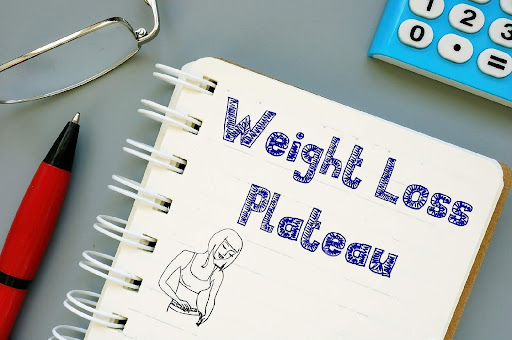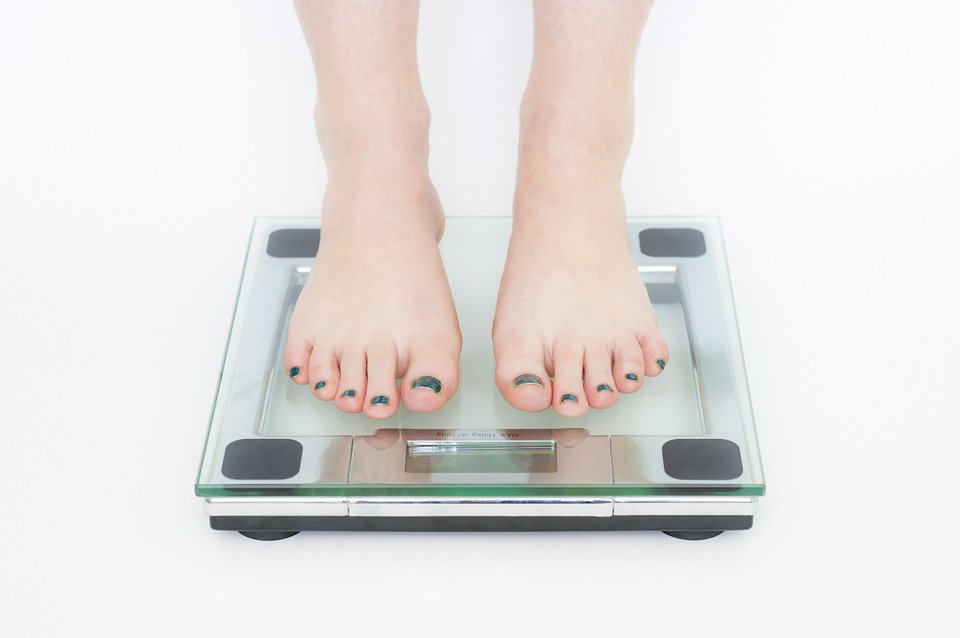
by Stan Hunnekens

Are you struggling to lose weight? Have you noticed that no matter how much effort you put into your weight loss journey, the scale simply won’t budge? If so, you may be experiencing a weight loss plateau.
These frustrating periods are a common occurrence on the weight loss journey, but they don’t have to derail your progress. In this article, we’ll explore how to overcome common weight loss plateaus so that you can continue to move towards your health and fitness goals.
Understanding Weight Loss Plateaus
Before we dive into strategies for overcoming weight loss plateaus, it’s important to understand what they are and why they happen.
A weight loss plateau is a period during which you stop losing weight despite continuing to follow your diet and exercise regimen. This can be incredibly frustrating and demotivating, especially if you’ve been making significant progress up until that point.
Reasons for Weight Loss Plateaus
There are several reasons why weight loss plateaus occur. One of the most common is simply that your body has adapted to your current routine.
When you first begin to make changes to your diet and exercise habits, your body responds by shedding excess weight relatively quickly. However, as time goes on, your body adjusts to your new routine, and weight loss may slow or stop altogether.
Another reason weight loss plateaus occur is that your body may be holding onto excess water weight. This can happen if you’ve been eating a lot of salty foods or if you’ve recently started a new exercise routine. When you exercise, your muscles can retain water in order to repair and rebuild themselves. While this is a good thing in the long run, it can cause the number on the scale to stay the same or even go up in the short term.
Finally, stress can also contribute to weight loss plateaus. When you’re stressed, your body produces a hormone called cortisol, which can cause you to hold onto excess weight, especially around your midsection.
Now that we understand what weight loss plateaus are and why they happen, let’s explore some strategies for overcoming them.
Strategy #1: Mix Up Your Exercise Routine
One of the best ways to overcome a weight loss plateau is to mix up your exercise routine. If you’ve been doing the same workouts for weeks or months on end, your body may have adapted to them, and you may not be seeing the same results that you were initially. By incorporating new exercises into your routine, you can challenge your body in new ways and kickstart your weight loss once again.
Try incorporating strength training into your routine, as this can help build lean muscle mass and boost your metabolism. Alternatively, try a new form of cardio, such as cycling, swimming, or dancing.
The key is to challenge your body in new and different ways in order to keep it guessing and prevent it from adapting to your routine.
Strategy #2: Reanalyze Your Calorie Consumption
Your body might have adapted to your current calorie intake, which is another possible contributing to weight loss plateaus. Your body may have evolved to this amount if you’ve been eating the same number of calories for weeks or months at a time. You might no longer be in a calorie deficit, which is required for weight loss.
Changing your calorie intake can break through this plateau. Reassess your daily caloric requirements first, taking into account your present weight, height, and degree of activity.
After you know how many calories you need each day, try lowering your intake by 100–200 calories each day. This can seem small, but over time it could have a big impact. You can do this by reducing portion sizes or by replacing high-calorie items with lower-calorie options. Remember that you should never consume fewer than 1,200 calories per day because doing so can harm your health.
Strategy #3: Make sure you’re getting enough protein
Protein is a fundamental food that is extremely important for weight loss. It speeds up your metabolism, keeps lean muscle mass in tact, and keeps you feeling full. It could be more difficult for you to lose weight if you don’t consume enough protein in your diet.
The amount of protein that is suggested for daily consumption varies depending on your weight, age, and level of activity. Aim to eat at least 0.8 grams of protein per kilogram of body weight each day as a general rule. For instance, if you weigh 70 kilos, your daily protein intake should be at least 56 grams.
Boost your protein consumption by including foods high in protein in your diet, such as:
- Lean meats
- Poultry
- Fish
- Beans
- Lentils
- Tofu
Using protein supplements like whey protein powder or protein bars is another option. Yet it’s crucial to keep in mind that supplements should be used in addition to a healthy diet, not as a replacement for it.
Strategy #4: Incorporate strength training into your workout routine
Strength training is crucial for developing lean muscle mass, whilst cardio exercises are fantastic for burning calories and decreasing weight. Even when you’re at rest, muscle burns more calories than fat, so the more muscle you have, the more calories you’ll burn all day.
You can overcome a weight reduction plateau by including strength training in your fitness routine. Focus on all major muscle parts, such as your arms, legs, back, and chest. Try to do strength training exercises at least two to three times each week. Exercises like squats, lunges, push-ups, and rows can be done with free weights, resistance bands, or weight machines.
Strategy #5: Rest & Recovery
Recuperation and rest are important. Giving your body time to relax and recover is just as vital as staying active and exercising frequently. Doing too much exercise can actually slow down your progress in losing weight, so be sure to take rest days and get adequate sleep.
Sleeping at least seven to eight hours every night can tremendously affect your ability to lose weight. Your hormones might be upset by not getting enough sleep, which increases hunger and cravings while slowing your metabolism. It’s also crucial to pay attention to your body’s needs and take rest days as needed. This will give your muscles time to recuperate and expand while also helping to prevent injuries.
Conclusion
Although they might be upsetting and demotivating, weight loss plateaus are not the end of your weight loss journey. You can get through these plateaus and keep moving forward on your way to a healthier and happier life.
If you’re having trouble breaking through a weight loss plateau, don’t be afraid to ask friends, family, or a healthcare provider for assistance. You may overcome any challenges that come your way and succeed in your weight loss objectives by remaining dedicated and consistent.
FAQs
Is it normal to experience a weight loss plateau during my weight loss journey?
Yes, it’s common to experience a weight loss plateau at some point during your weight loss journey. This occurs when your body adjusts to your new lifestyle habits and your weight loss slows down or stops altogether.
How long does a weight loss plateau usually last?
The duration of a weight loss plateau varies from person to person, but it can last anywhere from a few days to several weeks.
Do weight loss plateaus only happen during calorie restriction?
No, weight loss plateaus can occur even if you are not restricting your calorie intake. They can happen if your body adapts to your exercise routine or if you are not getting enough quality sleep.
Can stress affect weight loss plateaus?
Yes, stress can affect weight loss plateaus by increasing the production of cortisol, a hormone that can lead to weight gain and make it harder to lose weight.
Can I prevent weight loss plateaus from happening?
While you can’t completely prevent weight loss plateaus from happening, you can reduce their frequency by varying your exercise routine, eating a balanced diet, managing stress levels, and getting enough quality sleep.
 Stan Hunnekens is an online marketing specialist and a blogger for Fit & Focused Weight Loss. On Fit & Focused Weight Loss you’ll find weight loss motivation, tips, workouts and resources to help you reach your weight loss goals. The goal is to bring together a community of people on a journey to a healthier and happier you!
Stan Hunnekens is an online marketing specialist and a blogger for Fit & Focused Weight Loss. On Fit & Focused Weight Loss you’ll find weight loss motivation, tips, workouts and resources to help you reach your weight loss goals. The goal is to bring together a community of people on a journey to a healthier and happier you!




